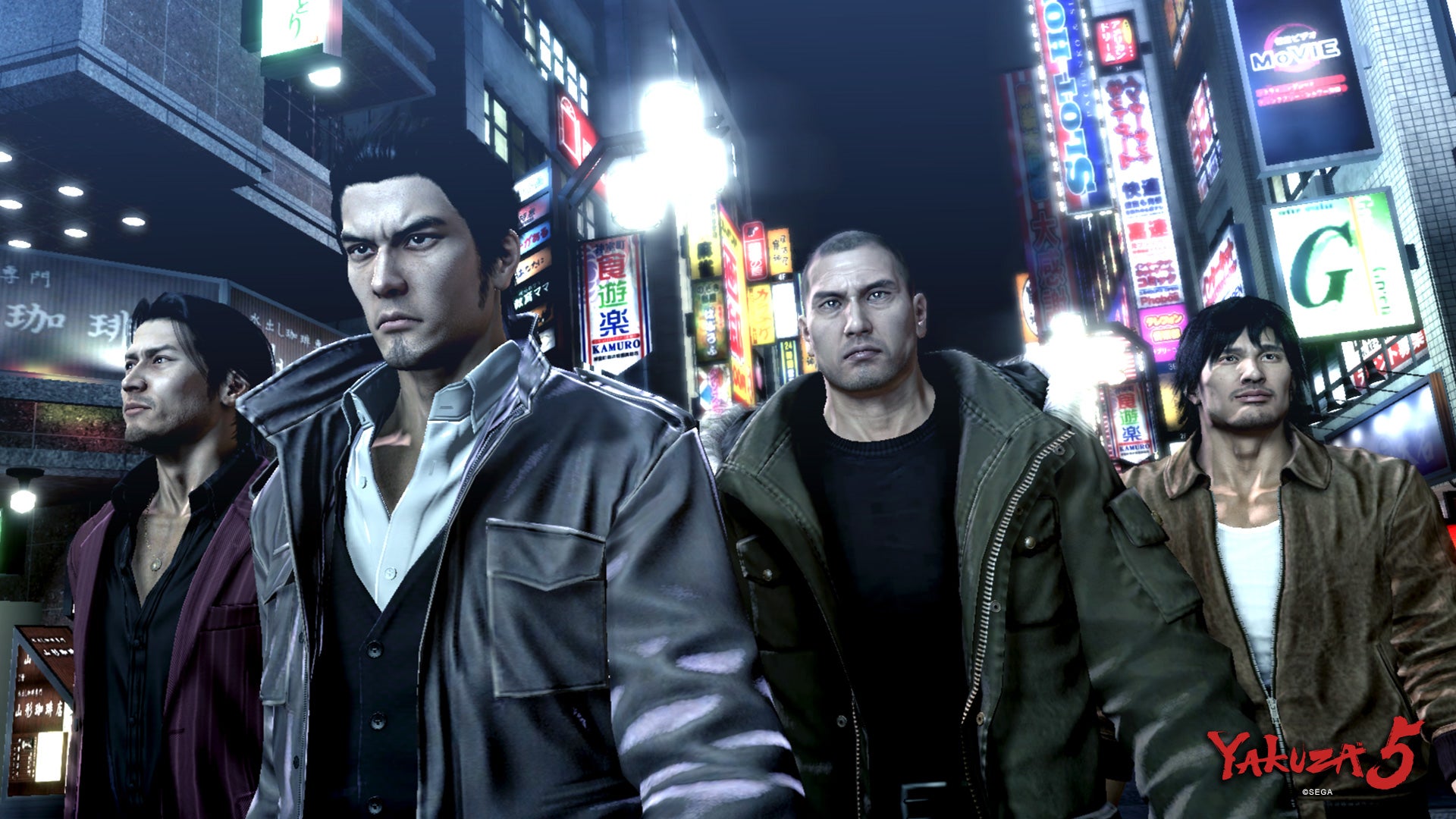 |
| Keep the pace just right boys |
This week's
class was about the use of pacing within video games, and how it is important
to the success of video games to be able to encourage players to game in flow. I
chose to play Yakuza 5 this week, playing the game from a critical point of
view regarding the way the game is paced. The start of the game lays the
foundation rather well for the player giving some insight into the dangerous
world of the Yakuza. It sets the player up as Kazuma Kiryu, A man who's past
won't leave him alone as his old Yakuza gang is trying to forge an alliance in
the city he now lives in. The game lets the player know that there is a lot at
stake. To lighten the tone the player is then given a reprieve to find a gift
for another cab company for an earlier discretion. After this the player and
the boss of the taxi company go out for food and drinks. The pacing is still
slow and is building, in the last hostess club the player is then introduced to
the fighting mechanics as he sorts out a bunch of unruly patrons. The flow in
combat like the rest of the game is seamless and easy to learn. This then ends
the night, and the player then goes to work in the morning. What I found with
Yakuza 5 is that its flow is very similar throughout. Below is a pacing chart for the first chapter of the game.
The player is given a lot to think about and then is hit with combat to keep the player engaged. After the combat is over the player is then given a reprieve to do things that are less stressful. I liked the pacing as it was not trying to overwhelm the player all the time. It made me appreciate the windows in between the combat such as being a taxi driver. It's in these exchanges that the player can be lucky to observe some really human interaction. The flow of the game is in such a way that it feels like a slice of life from each different mini game within the broader spectrum of the full game. The flow from each scene to scene is seamless like water. The best uses of pacing are generally found in most games that are story orientated and I believe this is down to the way that it manages to keep the flow of the character going. If the player is asked to do too much all the time it will get frustrating as there would be no break but if the player is not being pushed to do anything at all they will grow bored and stop playing. Finding the optimal state of flow is the essence of great game design. Great pacing should be like water, why you may ask? "Water can flow or it can crash be water my friend" - Bruce Lee
Image References
https://i.kinja-img.com/gawker-media/image/upload/cfzieaifq2935r4e2jvs.jpg
The player is given a lot to think about and then is hit with combat to keep the player engaged. After the combat is over the player is then given a reprieve to do things that are less stressful. I liked the pacing as it was not trying to overwhelm the player all the time. It made me appreciate the windows in between the combat such as being a taxi driver. It's in these exchanges that the player can be lucky to observe some really human interaction. The flow of the game is in such a way that it feels like a slice of life from each different mini game within the broader spectrum of the full game. The flow from each scene to scene is seamless like water. The best uses of pacing are generally found in most games that are story orientated and I believe this is down to the way that it manages to keep the flow of the character going. If the player is asked to do too much all the time it will get frustrating as there would be no break but if the player is not being pushed to do anything at all they will grow bored and stop playing. Finding the optimal state of flow is the essence of great game design. Great pacing should be like water, why you may ask? "Water can flow or it can crash be water my friend" - Bruce Lee
Image References
https://i.kinja-img.com/gawker-media/image/upload/cfzieaifq2935r4e2jvs.jpg
